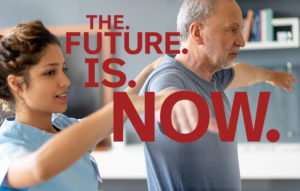 Here’s what keeps us up at night: researchers will find a drug that actually works, and yet without understanding the natural history of the disease, they can’t prove the drug is what made the difference. Therefore, the drug efficacy is difficult to prove to the FDA. The very first question a drug company asks when exploring the possibility of developing a drug for FSHD is “do you have natural history study?” That’s how important it is. They won’t want to invest in drugs that can’t be proven.
Here’s what keeps us up at night: researchers will find a drug that actually works, and yet without understanding the natural history of the disease, they can’t prove the drug is what made the difference. Therefore, the drug efficacy is difficult to prove to the FDA. The very first question a drug company asks when exploring the possibility of developing a drug for FSHD is “do you have natural history study?” That’s how important it is. They won’t want to invest in drugs that can’t be proven.
You might think it would be trivial to prove that an FSHD treatment works. Can’t you just show that a person gets stronger or grows back lost muscles after taking a pink pill? In a word, no.
If you’ve ever attended one of our chapter meetings or conferences, you’ll know that FSHD is highly variable. Some people need a wheelchair before age 20, while others make it to retirement with only a slight limp. The weakness progresses in unpredictable fits and starts. Exercise helps many people regain some strength and function for a time. All of this makes it difficult to prove that a treatment is slowing or stopping the disease. There are additional obstacles. FSHD is a rare disease, and only a fraction of patients volunteer for natural history studies such as the U.S. national registry at the University of Rochester.
Seeking solutions through machine learning
Even if more of you signed up today (and you should!), it will take years to reach critical mass. Analyzing this enormous data set will be daunting. All in all, these problems are highly challenging. This is why the FSHD Society’s Therapeutic Accelerator initiative is laser-focused on ensuring that we have solid natural histories—scientifically robust, FDA-ready. One solution we are pursuing is to aggregate data from all 13 FSHD registries around the world and exploring ways to use artificial intelligence to analyze it. Our goal: to find subsets of patients who have predictable rates of symptom progression. Such patients would be ideal to recruit for clinical trials.
The FSHD Society is also leading the way through its role in launching the FSHD Clinical Trial Research Network (CTRN), which is running a pivotal natural history study called ReSOLVE. This study aims to develop validated tools to measure changes in muscle structure, chemistry, strength, and function—tools that are essential to prove that new treatments are effective. As one clinical trial expert said to us last week, while many patients aspire to be in a drug trial, volunteering for ReSOLVE is even more important in terms of the impact on accelerating the development of treatments.
In all of this, you have played the most important role, by volunteering for research and providing the financial resources to make these rapid advances possible. The future is now. we thank you for getting us here and for your continued commitment.




Leave a Reply